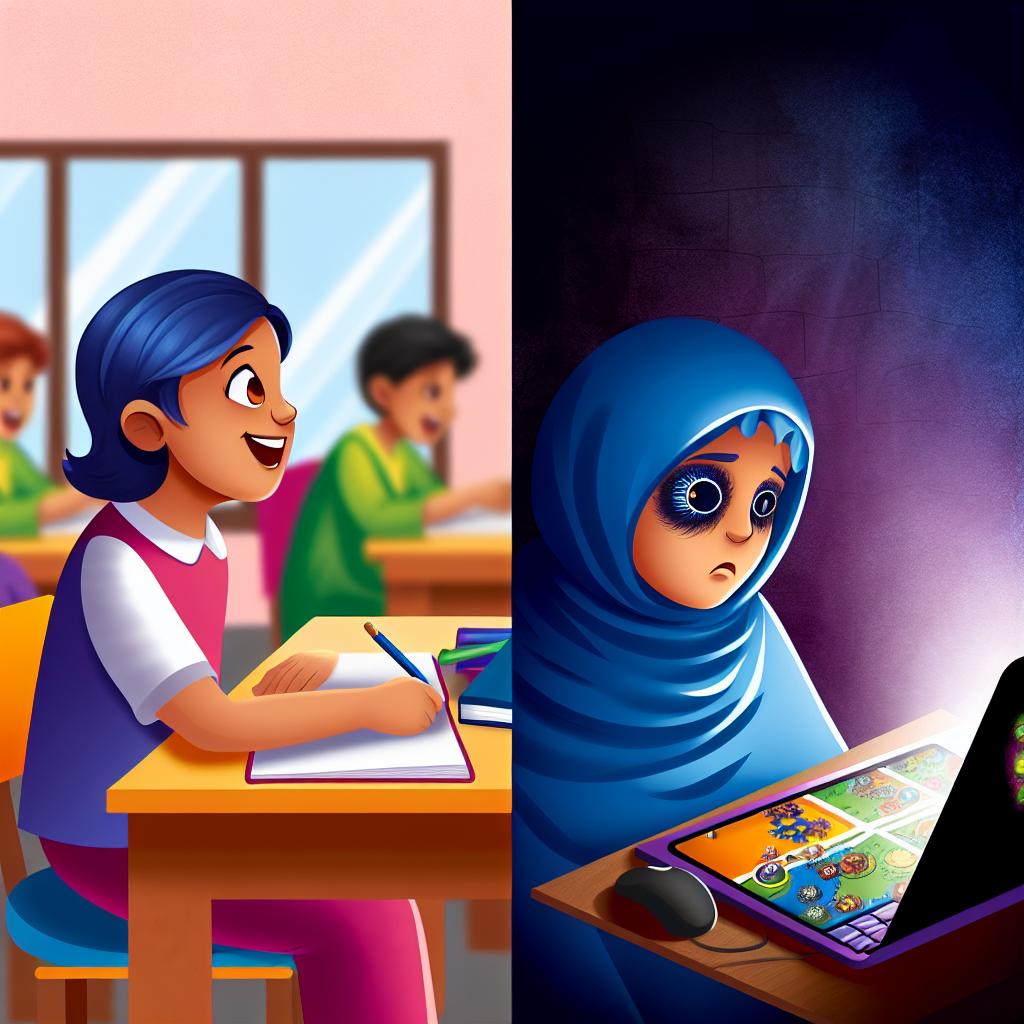Introduction
Over the past few years, gaming has cemented its place as a leading recreational pursuit among school-aged children. The allure of gaming is not hard to understand—many games provide rich, interactive experiences that not only entertain but also enhance cognitive functions and problem-solving capabilities. However, the line between beneficial engagement and detrimental overindulgence can often blur. When gaming develops into an addiction, it can negatively affect a child’s academic journey and social maturation.
Understanding Gaming Addiction
Gaming addiction, often referred to in clinical terms as Internet gaming disorder, manifests as a compulsion to play video games, even when such activity results in harmful consequences. This condition has gained recognition in mental health domains and is officially acknowledged by the World Health Organization as a legitimate mental health disorder. Children, due to their developmental phase, are particularly vulnerable. Their young, impressionable minds can be easily captivated by the engaging nature of electronic games, which often offer immersive worlds and interactive challenges.
Impact on Academic Performance
The ramifications of gaming addiction extend into the academic sphere. When gaming consumes an excessive amount of a child’s time, several academic hurdles may arise:
Decreased Attention Span: Continuous and prolonged engagement in gaming can cause a notable reduction in a child’s ability to concentrate. This may lead to difficulties in focusing on educational tasks, affecting learning outcomes.
Poor Time Management: Time, a finite resource, can be misallocated by children suffering from gaming addiction. In many cases, gaming takes precedence over academic responsibilities, resulting in overdue or unfinished homework and subpar test results.
Reduced Sleep Quality: A common practice among young gamers is indulging in late-night gaming sessions. Such habits disrupt natural sleep patterns, leading to fatigue and diminished alertness during school, which directly affects classroom performance and participation.
Social and Emotional Consequences
Beyond academics, gaming addiction also significantly influences a child’s socio-emotional landscape.
Social Isolation: Children deeply involved in gaming might choose virtual worlds over real-world interactions. This withdrawal from familial and friendly circles can lead to isolation, adversely affecting social development.
Altered Emotional Regulation: Gaming addiction is often accompanied by emotional challenges, such as heightened irritability or anxiety, particularly when the opportunity to play is restricted. Such emotional turbulence can impede healthy interactions with both peers and family members.
Strategies for Mitigating Gaming Addiction
Addressing gaming addiction requires concerted effort and strategic interventions. Both parents and educators possess critical roles in guiding children towards a balanced approach to gaming.
Set Clear Limits: Enforcing time limitations on gaming ensures equilibrium, allowing children to evenly distribute their focus between academics, physical activities, and leisure time.
Encourage Other Interests: By nurturing alternative interests—be it arts, sports, or music—children gain avenues for fulfillment and engagement beyond the gaming sphere. Such diversity enhances overall development and provides multiple platforms for achievement.
Open Communication: Dialogue is a powerful tool. Engaging children in conversations about the potential pitfalls of gaming addiction can heighten their self-awareness. Simultaneously, it provides a platform for expressing any gaming-related concerns, fostering a healthier gaming culture.
Conclusion
Gaming, when approached with balance, can serve as a beneficial recreational pursuit. Nevertheless, it is imperative for parents, educators, and even policymakers to remain vigilant about the hazards associated with gaming addiction, especially among school-aged children. A deep understanding of gaming addiction’s ramifications empowers stakeholders to effectively support a child’s holistic development. By implementing sound strategies, it is possible to ensure that gaming continues to occupy a healthy, positive space in a child’s lifestyle, complementing rather than compromising their academic, social, and emotional well-being.

